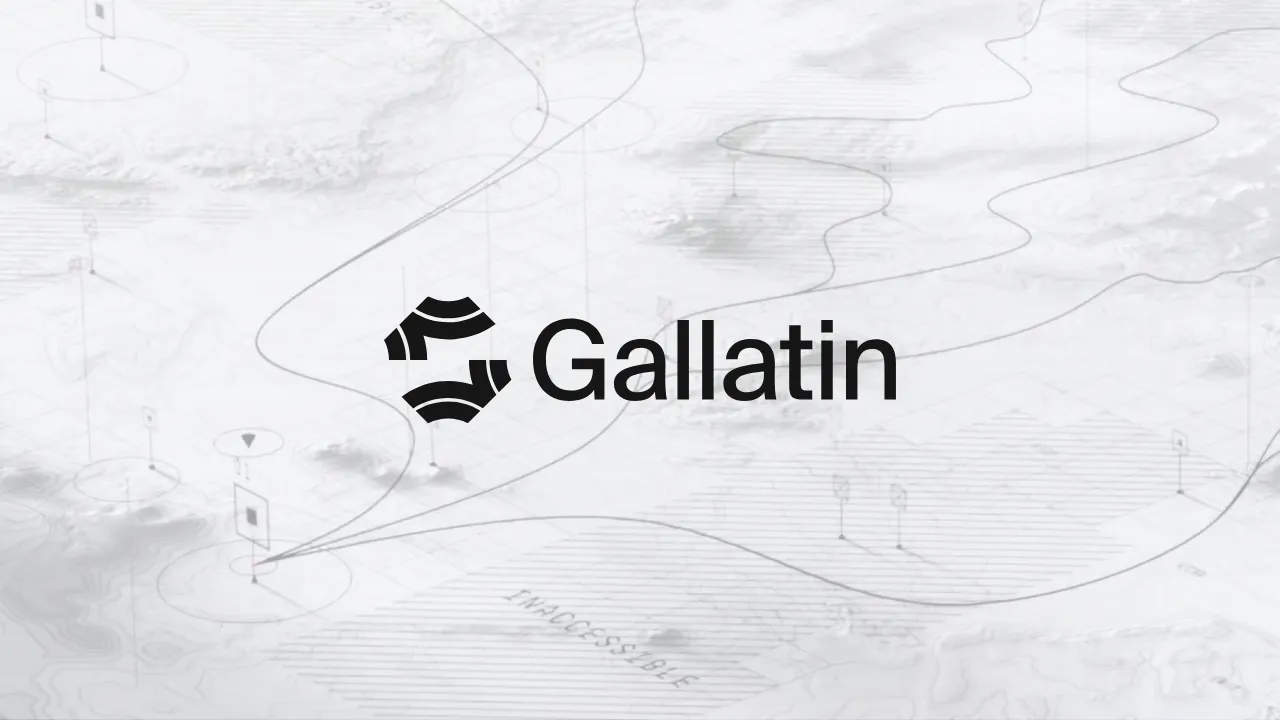

The U.S. military’s logistical infrastructure, built for 20th-century conflicts, is straining under the demands of modern warfare. Supply chains that once supported slow-moving campaigns now face the challenge of delivering fuel, food, batteries, and medical supplies to smaller, faster, and more dispersed units across contested environments. While commercial logistics have been transformed by AI and automation, defense operations remain heavily reliant on manual processes and outdated tools.
It’s this disconnect that led Woody Glier, Daniel Buchmueller, and Brian Ballard to launch Gallatin AI in 2024. On Tuesday, the Washington-based startup emerged from stealth with $15 million in pre-seed funding to address what its founders describe as one of the most urgent, yet overlooked, vulnerabilities in national security: military sustainment. The funding round was led by venture capital firm 8VC, with participation from Silent Ventures, Moonshots Capital, Timeless Partners, and Banter Capital. The leadership team behind Gallatin AI brings a combination of experience from both tech and defense, including previous roles at Palantir, Scale AI, Amazon, and U.S. government agencies such as the Department of Defense and the intelligence community.
Gallatin’s aim is to bring modern software engineering and AI to military logistics to improve how defense planners and logisticians make critical supply chain decisions. “We’re entering this new era … whether it’s the Houthis and cost-effective drones and rockets, whether it’s great power competition in the Pacific, there’s real concern that supply lines have never been more vulnerable,” said Glier in an interview with FreightWaves. “We lack a current generation of predominantly software-based capabilities, AI capabilities, that will allow more rapid decision making in order to move the right things to the right places at the right time.”
At the center of Gallatin’s product offering is Navigator, a decision support platform that uses real-time data integration, simulation, and AI-generated courses of action to accelerate resupply planning. By analyzing consumption trends and operational needs, Navigator replaces hours of manual planning with software that continuously learns from user inputs and adjusts recommendations accordingly.
Navigator was designed with the practical experiences of military logisticians in mind. During its development, Gallatin’s team interviewed hundreds of retired logistics personnel, many of whom described managing “shadow inventories”—mental models built over years of experience to account for unit-specific consumption habits. “So logisticians, they’re building their own algorithm,” said Glier. “It could be that Alpha Company eats more food, and their standard food resupply is slightly higher. Another unit might go through more water, or they have more fuel generation needs. Navigator is sort of taking that shadow inventory concept, trying to move it out of the logistician head.”
Napoleon said armies march on their stomachs. We built software so soldiers don’t march hungry pic.twitter.com/MUkDTuct1r
— Gallatin AI (@GallatinAI) April 9, 2025
By centralizing those informal insights and connecting them to normalized data inputs—from LOGSTATs to JBC-P messages to embedded sensors—Navigator gives commanders a unified, predictive view of their resupply needs. It flags anomalies, anticipates shortages, and enables users to take proactive measures before gaps impact operations.
“We’re targeting operational resupply,” said Glier. “[I]t’s the daily calculation of food, fuel, water, batteries, medical supplies … . If those supplies don’t move from the operational distribution points to the tactical edge, our troops can’t move.”
According to Glier, the credibility of U.S. deterrence hinges on updating its logistics infrastructure. “We founded Gallatin because the credibility of our deterrence depends on modernizing defense logistics—a critical vulnerability that, if left unaddressed, jeopardizes our ability to project power against emergent threats,” he said.
To make that point, Glier referenced the failed Russian convoy outside Kyiv in early 2022. Despite its size, the convoy stalled due to basic logistics breakdowns: fuel shortages, poor maintenance, and a lack of coordination. “If logistical collapse can cripple a major power operating in its own backyard, what vulnerabilities could adversaries exploit when the United States and its allies attempt to project power thousands of miles away?”
8VC, which incubated Gallatin through its Build program, sees the startup as addressing a widening gap. “For years, we’ve seen the growing gap between commercial logistics innovation and the capabilities of our military partners and industrial base,” said Alex Moore, Partner and defense lead at 8VC. “We partnered with Gallatin’s team to close that gap, bringing commercial-grade AI and automation to the Department of Defense’s most urgent logistics challenges.”
Jake Medwell, Partner and logistics lead at 8VC, added: “Gallatin’s approach represents a step change in building resilient, responsive supply chains capable of operating from factory loading docks all the way to customers subject to contested conditions.”
Gallatin plans to use the funding to expand its engineering and deployment teams. The company is currently hiring for roles that will support the scaling of Navigator across military services and support ongoing pilot programs with defense partners.
Gallatin’s founders argue that the shift toward smaller, more agile, and attritable systems has added a new layer of complexity to military logistics—one that existing systems were never designed to handle. Today’s operational demands require more than just efficiency; they demand flexibility, foresight, and rapid execution.
Gallatin’s solution is not to replace the logistician but to augment their capabilities. Its software is designed to help defense planners balance cost and readiness, enabling them to manage inventory, forecast demand, synchronize transportation, and adapt to disruptions whether in peacetime or during conflict.
“Logistics are the silent rails that carry military power—and they are rusting beneath our feet.”
📣 Want to advertise in AIM Research? Book here >
Cypher 2024
21-22 Nov 2024, Santa Clara Convention Center, CA
A Vendor Briefing is a research tool for our industry analysts, and an opportunity for a vendor to present its products, services and business strategies to analysts who cover the vendor specifically or a related technology or market.
AIM Research encourages technology vendors and agencies to brief our team for PeMa Quadrants, when introducing a new product, changing a business model, or forming a partnership, merger, or acquisition.


